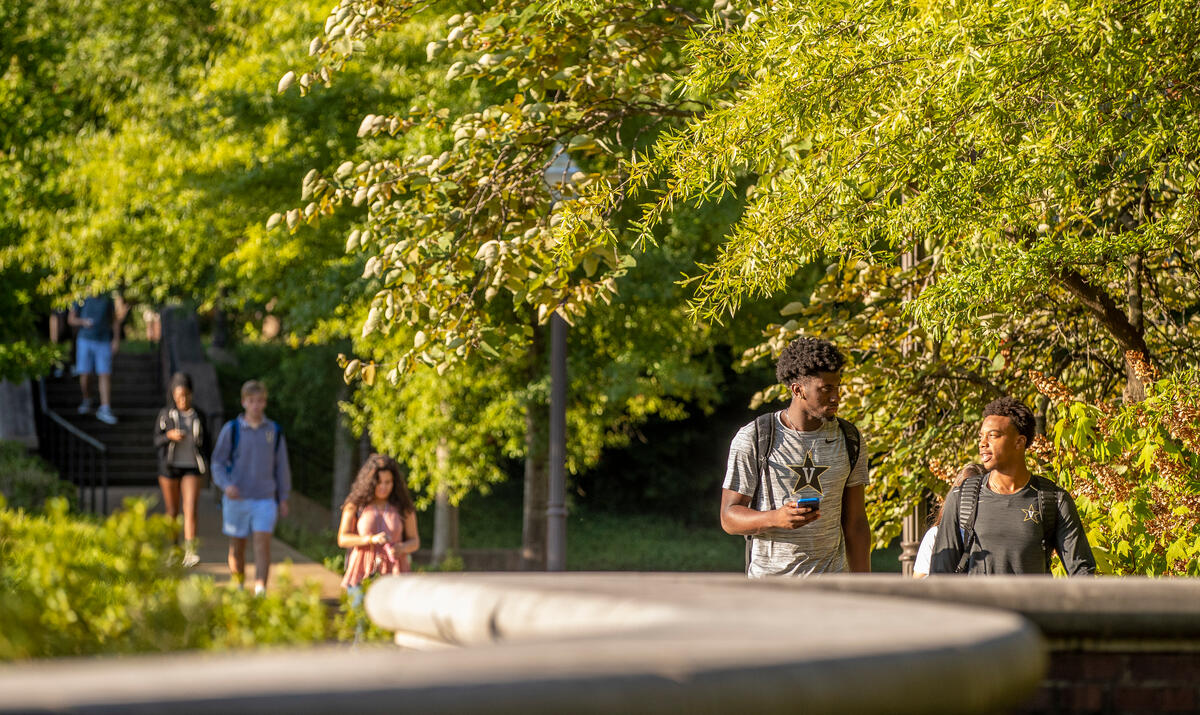Through Opportunity Vanderbilt, we meet 100% of every student’s demonstrated financial need, without loans.
Our resolve to make a Vanderbilt education accessible and affordable to all admitted students is stronger than ever. Both our need-based and merit-based scholarships reflect our dedication to making a Vanderbilt education possible.
-
65%
of undergrads receive some form of financial assistance
-
$62.7
million in scholarships for 2023–24 first-year students
See how we're making Vanderbilt accessible to all qualified students regardless of their economic circumstances through our Opportunity Vanderbilt financial aid program.
Net Price Calculator
Our net price calculator can be used to estimate your need-based financial aid eligibility at Vanderbilt. Please note that this calculator is intended for use by U.S. citizens and eligible non-citizens (as defined by the U.S. Department of Education for federal student aid purposes) who will be full-time, first-year undergraduate students. Our calculator will NOT produce any indication of your potential for receiving merit-based Vanderbilt assistance or your potential to be admitted.
Please keep in mind the information generated by the net price calculator will be an estimate. The results will only be as accurate as the information provided; read instructions carefully and use the help icons as needed. The net price calculator is currenlty applicable to the 2022-23 academic year.
Cost of Attendance
Academic year 2023-24
| Tuition | $61,618 |
| Housing | $13,484 |
| Food | $7,570 |
| Books, course materials, supplies & equipment | $1,194 |
| Student services fee | $1,554 |
| Student health fee | $774 |
| Personal expenses | $3,396 |
| Transportation | Varies |
| Estimated Total | $89,590 (plus travel) |
| First-year fee | $980 |
| New student transcript fee | $100 |
| Engineering fee (engineering students only) | $1,100 |
| First-year engineering laptop allowance (first-year engineering students only)* | $1,700 |
| Blair technology equipment fee (first-year music majors only) | $598 |
| Residential college fee (upper-division students housed in E. Bronson Ingram, Moore, Nicholas S. Zeppos, Rothschild, or Warren Colleges only) | $824 |
Modest annual increases can be expected. Students should also allow for travel expenses and health insurance (if purchased through Vanderbilt). *First-year engineering students are required to either purchase a laptop from Vanderbilt or provide their own computer that meets published requirements. | |
|---|---|


Merit Scholarship Programs
Vanderbilt awards merit-based scholarships to applicants who demonstrate exceptional accomplishment and intellectual promise.
Three signature scholarships—the Ingram Scholars Program, the Cornelius Vanderbilt Scholarship, and the Chancellor’s Scholarship—comprise the majority of Vanderbilt’s merit-based awards. Recipients of these scholarships are guaranteed full-tuition awards for up to eight semesters that include a stipend for research, study abroad, a creative endeavor, or the required Immersion Vanderbilt experience.
International Students
Vanderbilt University offers need-based scholarships to a limited number of international undergraduate applicants.
International first-year applicants are eligible to apply for all merit-based scholarships offered at Vanderbilt.
Undocumented and Deferred Action for Childhood Arrivals (DACA) Students
Undocumented and DACA students are eligible for Vanderbilt’s need-based financial aid program in the same way as U.S. citizens. Vanderbilt is need-blind in the admissions process; your ability to pay is not part of the admissions decision.
